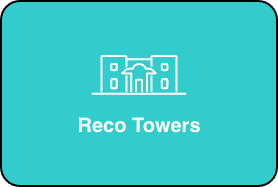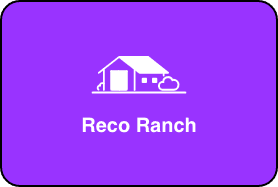Exploring the Dynamics of Peer Support at Reco Institute

Unveiling the Realm of Peer Support in Sober Living
The Foundation of Connection
In the intricate journey of recovery, establishing a foundation of connection is crucial for success. At RECO Institute, the concept of peer support dynamics in recovery forms the backbone of their programs, offering individuals the emotional and social support needed to thrive. In the warmth of a supportive environment, relationships are nurtured, fostering genuine bonds that transcend mere acquaintanceship. These connections provide a stable handhold along the often turbulent path of recovery, ensuring that no one walks alone. Thriving within structured sober living homes, individuals engage in transformative peer interactions that are pivotal to their personal growth and long-term sobriety.
Historical Overview of Peer Support in Recovery
Peer support has a rich history intertwined with the fabric of recovery communities. Traditionally, it has served as a cornerstone for countless individuals battling substance use disorders and seeking a way forward. This concept blossomed from grassroots movements, evolving into a celebrated component of modern treatment programs. At RECO, peer support is not just a relic of the past; it is a dynamic, evolving element woven into recovery support systems at RECO. Users are invited to partake in a legacy of support that has weathered the test of time, proving itself indispensable in the landscape of addiction recovery.
Importance of Authentic Peer Connections
Authentic peer connections are vital in achieving successful recovery outcomes, serving as lifelines during the journey to sobriety. Such relationships, fostered within the RECO Institute’s transitional housing framework, facilitate open communication, vulnerability, and trust. Genuine bonds are forged through shared experiences, mutual respect, and a common goal of sobriety. These connections empower individuals to face challenges with a supportive network backing them, amplifying resilience, and fortifying their resolve. Moreover, transformative peer interactions near Delray Beach illuminate the path to transformation, offering a beacon of hope in the rugged terrain of recovery.
The Dynamics Within: Transformative Peer Interactions
Psychosocial Support Frameworks at RECO
At the heart of RECO Institute’s success is its emphasis on well-structured psychosocial support frameworks. These frameworks provide a stable environment where individuals can foster emotional growth and resilience. By utilizing emotional peer support frameworks, residents learn critical skills that enhance their recovery journey and develop essential coping mechanisms. Through professionally guided sessions, participants engage in meaningful dialogues that nurture their emotional well-being. This multidimensional approach to recovery not only reinforces abstinence but also equips individuals with the tools necessary for sustained personal growth.
The depth of RECO’s psychosocial support is further enhanced by fostering an open environment where individuals can confront the underlying issues of their addiction. This transformative process is vital for those overcoming substance use disorders, as it allows for introspection and the development of healthier behavioral patterns. Such robust frameworks help in building a strong foundation for recovery, leading to improved outcomes in sober living programs.
Navigating Peer Engagement in Sober Living Residences
Engaging with peers in sober living residences like RECO can dramatically shape an individual’s recovery pathway. These interactions are orchestrated to encourage supportive peer dynamics within a controlled and empathetic setting. By being an integral part of these sober social networks in recovery, individuals experience mutual growth and solidarity as they navigate the complex path to long-term sobriety.
Peer engagement helps cultivate a sense of shared responsibility and accountability among residents. This communal aspect is beneficial in reinforcing recovery-oriented behaviors and reducing feelings of isolation and shame that often accompany addiction recovery. The seasoned professionals at RECO foster a culture of open communication, ensuring that every resident is both heard and supported throughout their journey.
Building a Healing Community: Group Homes and Beyond
RECO Institute’s group homes are more than just a place to live; they serve as a sanctuary for healing and transformation. The creation of healing community environments within these homes is pivotal in fostering a nurturing space where residents can heal from the scars of addiction.
In these environments, individuals benefit from daily interactions that teach empathy, cooperation, and mutual respect. Group homes at RECO offer the perfect setting for residents to practice and improve their interpersonal skills, essential for thriving both within and outside the confines of the sober living community. Beyond the immediate benefits, these interactions lay the groundwork for building sustainable recovery relationships that extend into life beyond the RECO Institute.
The holistic approach employed in RECO’s group homes underscores the power of community as a robust tool for addiction recovery. These nurturing settings not only support current recovery efforts but also fortify individuals against potential relapse, ensuring the long-term sustainability of their sober lifestyle.


The Architecture of Recovery Support Systems
Sober Social Networks: Pathways to Recovery
In the realm of recovery, sober social networks serve as a critical pillar, guiding individuals towards a healthier lifestyle. These networks, nurtured at institutions like RECO Institute near Delray Beach, leverage community-based recovery methods to foster personal growth and transformation. Individuals are encouraged to engage with peers who understand their journey, sharing both triumphs and setbacks. This mutual support not only aids in abstaining from substances but also builds a resilient pathway to lasting recovery. Through participation in structured activities, residents develop strong sober social bonds, empowering them to navigate the challenges of recovery with a supportive community at their backs.
At the heart of these sober social networks are the numerous interactions that cultivate a sense of belonging. Regular house meetings and group activities offer a safe space for individuals to express their emotions and receive constructive feedback, further reinforcing their commitment to sobriety. The dynamics within these social networks make way for positive peer influence, which plays a significant role in reinforcing recovery-focused behavior. Recovering individuals find solace in shared experiences, gaining insights and motivation from those who have traversed the same path, thus illuminating a well-trodden path to healing.
Recovery Mentorship: Guiding Personal Transformation
The journey to sobriety is profoundly personal, requiring tailored guidance and mentorship to navigate its intricacies. At RECO Institute, addiction recovery mentorship forms a cornerstone of their recovery support systems, nurturing personal growth through experienced guidance and support. This mentorship shapes each individual’s journey, providing the knowledge and support required for meaningful transformation. Through one-on-one sessions and group meetings, mentors at RECO offer invaluable insights into the process of recovery, facilitating essential behavioral changes that contribute to the well-being of their mentees.
Mentors bring their own recovery experiences into the fold, fostering an environment of empathy and understanding. This helps individuals in recovery feel seen and understood, encouraging open dialogue about their struggles and victories. Such mentorship moves beyond mere support; it is a cogent guide that shapes recovery paths, steers past obstacles, and inspires perseverance in the face of challenges. By instilling a sense of accountability and promoting personal responsibility, these mentorship dynamics accelerate personal transformation and fortify the individual’s resolve to maintain sobriety.
Collaborative Recovery Models within Transitional Housing
Transitional housing at RECO Institute thrives on collaborative recovery models at RECO, which are designed to encourage collaborative efforts among residents striving for sobriety. These models are meticulously crafted to provide a nurturing environment, where recovery is not an isolated journey but a collective endeavor. By integrating structured activities, individual therapy, and community involvement, RECO creates a comprehensive framework that supports each resident’s unique needs.
Within these collaborative models, residents find an ecosystem that bolsters their commitment to sobriety. The daily routine is thoughtfully structured to incorporate therapy sessions, educational workshops, and peer group meetings, laying down the foundation for a balanced recovery. These shared experiences facilitate the development of sustainable recovery relationships that endure beyond their stay at RECO, presenting a supportive network that residents can lean on throughout their sobriety journey. The collaborative nature of these programs ensures that everyone is invested not only in their individual recovery but also in the progress and success of their peers, promoting a culture of collective healing and empowerment.
Recovery-Oriented Environments and Their Impact
Creating Supportive Recovery Communities
Creating supportive recovery communities is an essential aspect of fostering long-term sobriety. At RECO Institute, the emphasis on community-based recovery in Florida ensures that individuals are enveloped in an environment conducive to healing and growth. These communities serve as sanctuaries where individuals can shed the burdens of addiction and fully immerse themselves in the tenets of sobriety. By nurturing a space of empathy and mutual respect, residents are empowered to forge meaningful connections that bridge the gap between past despair and future hope. Such environments are bolstered by the shared commitment of staff and peers, creating a cohesive system that strengthens the entire recovery community.
Within these supportive circles, individuals gain access to a wealth of resources that facilitate their journey toward sobriety. Diverse programs and activities are designed to encourage personal development while fostering a sense of accountability and trust among peers. Through these experiences, individuals cultivate skills that extend beyond sobriety, promoting a well-rounded approach to personal and communal well-being. This holistic model highlights the importance of embracing recovery as a lifestyle, rather than a temporary solution, reinforcing the stability of sober living homes.
Interpersonal Recovery Assistance as a Backbone of Sober Life
The role of interpersonal recovery assistance in Delray Beach is critical in establishing the foundation for a sober lifestyle. At RECO Institute, such assistance provides residents with the tools needed to navigate the complexities of recovery. This emphasis on personal interaction underscores the importance of building relationships rooted in understanding and compassion. By engaging with peers and mentors, individuals learn to communicate their needs and confront challenges with the support of a trusted network.
These interactions not only enhance personal growth but also foster a sense of belonging and community responsibility. As individuals traverse their recovery pathways, they benefit from the collective wisdom and encouragement of fellow residents and staff. This shared journey cultivates a deep-seated resilience that fortifies the individual’s resolve, allowing them to face sobriety with renewed confidence and vigor. The dynamics of interpersonal assistance thus play an integral role in shaping a sustainable sober life, further enriched by the camaraderie and support of a vibrant recovery environment.
Long-term Recovery through Comprehensive Peer Support
Achieving long-term recovery necessitates a robust framework of comprehensive peer support. This concept at RECO Institute is inherent in its program offerings, creating a stable foundation for lasting sobriety. The integration of sustainable recovery relationships ensures that individuals have continuous access to a network that reinforces positive behaviors and mindsets. Through ongoing engagement with peers, residents are continually reminded of their goals and supported in their pursuits of a healthier lifestyle.
Comprehensive peer support manifests in a variety of forms at RECO, from structured group activities to informal, everyday conversations. These interactions perpetuate a culture of support that extends beyond the immediate environment of the sober living residences. By solidifying connections within this communal setting, individuals gain the skills and confidence necessary to sustain their recovery journeys long after leaving the program. This enduring support system not only aids individuals but also enriches the broader recovery community, fostering an ecosystem that thrives on collective success and mutual encouragement.
Cultivating a Recovery-Driven Lifestyle
Integration of Sober Living Programs
The essence of recovery lies in the seamless integration of sober living programs. At RECO Institute, these programs are designed to provide a stable environment conducive to healing and personal growth. Sober living programs are pivotal in bridging the gap between treatment and independent living, offering structure, support, and guidance. Individuals residing in sober homes in Delray Beach engage actively in this community-centric lifestyle, empowering them to rebuild their lives free from substance use disorders. The integration involves structured activities, personalized recovery plans, and continuous professional support to address the complexities of addiction. By embracing this holistic approach, residents learn to navigate the challenges of sobriety while cultivating resilience and a positive outlook on life. RECO Institute’s transitional housing programs incorporate these elements, ensuring that each resident’s journey towards sobriety is supported by a robust framework tailored to their needs.
12-Step Meetings and the Role of Peer Dynamics
12-step meetings integration within the RECO Institute serves as a cornerstone for fostering peer dynamics that are vital to recovery. These meetings provide individuals with a structured pathway where shared experiences and mutual support become catalysts for transformation. Through the collective wisdom and shared struggles of the group, individuals find strength in unity. At RECO, the role of peer dynamics is emphasized by facilitating open dialogue, promoting accountability, and encouraging introspective growth. Participants gain valuable insights from others who have traversed similar paths, reinforcing their commitment to sobriety. Regular participation in these meetings strengthens community bonds and instills a sense of responsibility towards oneself and peers. These dynamics fortify the recovery support systems, enabling participants to confidently pursue a sober life. As residents engage in these 12-step meetings, they harness the power of collective healing to foster long-term recovery and personal transformation.
Sustained Recovery Relationships: A Lifetime Commitment
The foundation of sustained recovery relationships is built through the consistent support network that RECO Institute fosters. By encouraging genuine connections among residents, these relationships become a lasting force that extends far beyond the walls of sober living homes. Peer support dynamics are integral in nurturing these bonds, where trust, empathy, and shared experiences create a platform for lifelong recovery. Residents are empowered to cultivate an enduring network of support, enabling them to face post-recovery challenges with confidence. Programs at RECO Institute emphasize the importance of maintaining these connections, recognizing them as a vital component of sustainable recovery. By engaging in sober social networks, individuals develop the skills necessary to maintain and strengthen these relationships over time. These sustained interactions offer a beacon of hope and stability, underscoring the belief that recovery is not a solitary endeavor but a lifelong commitment supported by a robust peer community. In this supportive landscape, authentic peer connections in recovery thrive, promoting a vibrant recovery-driven lifestyle that encourages growth and resilience.


Conclusion: Beyond Sober Living – Embracing a Supportive Future
Reflecting on the Power of Community-Based Recovery
As we reflect on the journey of sober living, the power of community-based recovery stands out as an indispensable element. At institutions like the RECO Institute, the emphasis on cultivating a supportive milieu illustrates the profound impact of community dynamics on recovery outcomes. By integrating residents into a thriving network of support, these programs embolden individuals to step confidently towards a sober life. They foster an ecosystem where individuals are not only surviving but flourishing under the collective strength of their peers. The commitment to nurturing such environments validates the resilience of individuals battling substance use disorders, underscoring the belief that recovery is not an isolated endeavor. The profound connections built within these communities showcase the potential for transformation, allowing individuals to envision a future where recovery is sustainable and deeply rooted in shared support.
Continuing the Journey: The Impact of Peer Relationships
Embarking on the path to long-term sobriety is a lifelong commitment, one that extends beyond the confines of sober living residences. The impact of peer relationships cultivated at RECO Institute, located in Delray Beach, lays the foundation for ongoing personal growth. As these relationships extend beyond recovery housing into life, they offer a lifeline of support and companionship. Peer dynamics, fortified in such professional settings, equip individuals for the complexities of the outside world. Emphasizing the significance of authentic peer connections in recovery is crucial, as these bonds serve as pillars upon which sustainable recovery is built. To continue this journey seamlessly, one may explore admissions to the RECO Institute, ensuring access to resources and a community dedicated to lasting recovery. Navigating the journey with trusted peers ensures that individuals are never alone, empowering them to meet challenges head-on and maintain their hard-earned sobriety.
Frequently Asked Questions
Question: How does peer support dynamics at RECO Institute enhance the recovery journey?
Answer: Peer support dynamics at RECO Institute are central to the recovery journey, fostering a supportive and compassionate environment that is pivotal for personal growth. Through transformative peer interactions, individuals forge authentic connections with one another, creating a network of support that bolsters their resolve to maintain sobriety. These relationships are nurtured in a structured setting, emphasizing the importance of mutual support and accountability. By participating in sober social networks and engaging in both group and one-on-one mentorship, individuals at RECO Institute experience a path to recovery that is enriched by community-based recovery models and comprehensive emotional peer support.
Question: What role do psychosocial support frameworks at RECO Institute play in sustaining long-term recovery?
Answer: Psychosocial support frameworks at RECO Institute are foundational to sustaining long-term recovery. These frameworks provide individuals with a stable environment that encourages emotional growth and resilience through structured interactions and recovery-oriented environments. By integrating therapy sessions, group meetings, and peer engagement, RECO Institute ensures that each resident is supported by a robust network designed to promote holistic healing and personal growth. These frameworks not only reinforce abstinence but also equip individuals with essential coping mechanisms and skills to navigate the challenges of sober living, ensuring the longevity of their recovery journey.
Question: How do collaborative recovery models within transitional housing at RECO Institute foster a supportive recovery community?
Answer: Collaborative recovery models within transitional housing at RECO Institute are designed to create a cohesive and empowering recovery community. Through a communal approach, individuals engage in shared experiences that emphasize collective healing and empowerment. By participating in structured activities, therapy sessions, and peer group meetings, residents gain the support and solidarity needed to maintain sobriety. These collaborative efforts promote a culture of mutual responsibility, shared accountability, and interpersonal recovery assistance, which are essential for building and sustaining recovery-oriented environments that thrive on community strength and peer support.
Question: How does the integration of 12-step meetings and peer dynamics influence recovery outcomes at RECO Institute?
Answer: At RECO Institute, the integration of 12-step meetings and peer dynamics plays a pivotal role in influencing positive recovery outcomes. These meetings provide a structured environment where individuals share experiences and learn from the collective wisdom of the group. Emphasizing peer engagement and accountability, 12-step meetings foster authentic peer connections and underline the importance of comprehensive peer support. This structured pathway enables residents to explore personal growth, reinforce their commitment to sobriety, and cultivate sustained recovery relationships that are vital for long-term success.
Question: In the blog post Exploring the Dynamics of Peer Support at RECO Institute, how does RECO Institute emphasize the need for recovery-driven lifestyles?
Answer: In the blog post Exploring the Dynamics of Peer Support at RECO Institute, RECO Institute highlights the significance of cultivating recovery-driven lifestyles through its comprehensive programs focused on sober living integration. By providing a supportive environment where individuals engage with sober social networks and participate in activities that reinforce recovery-focused mindsets, RECO Institute encourages residents to adopt a holistic approach to sobriety. This involves embracing a lifestyle that prioritizes personal growth, emotional support, and the development of recovery relationships, which are essential for sustainable recovery and a fulfilling sober life.















